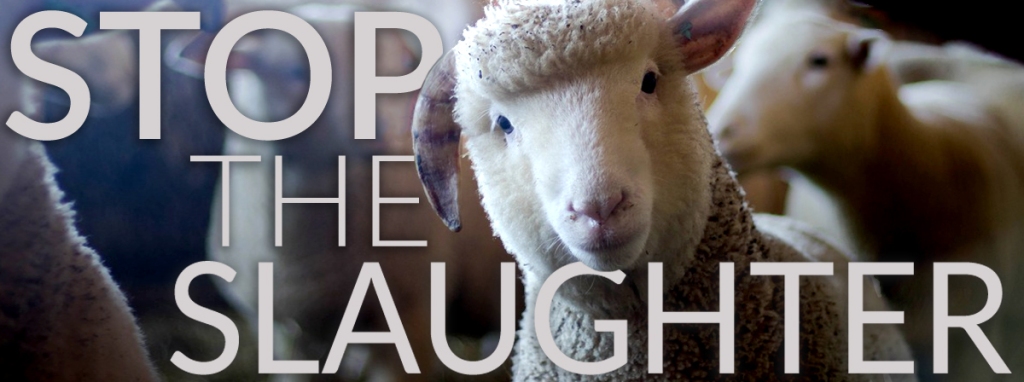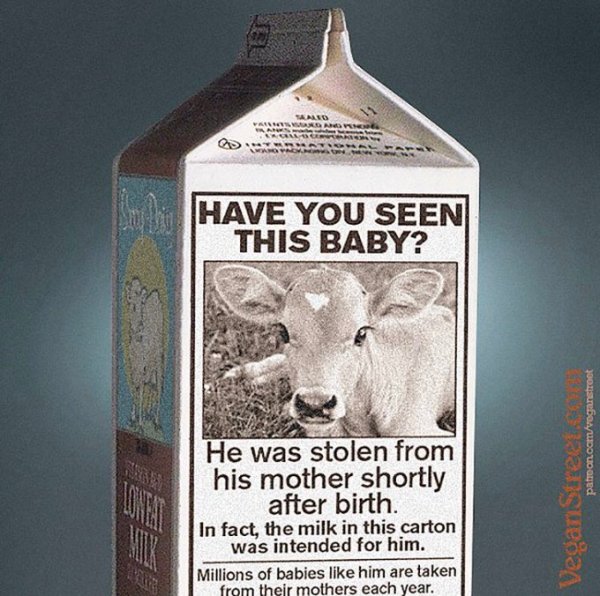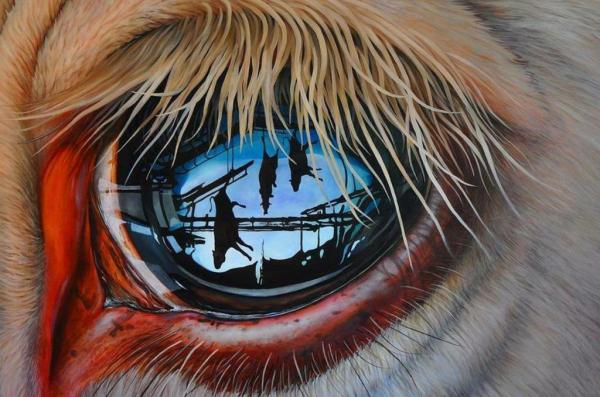Sustainability and Food Choice: Why Eating Local, “Less” Meat, and Taking Baby Steps Won’t Work
Source Vegan Outreach
The following findings were compiled from the executive summary of Livestock’s Long Shadow: Environmental Issues and Options* a 2006 report published by the United Nations Food and Agriculture Organization:
Climate change: With rising temperatures, rising sea levels, melting icecaps and glaciers, shifting ocean currents and weather patterns, climate change is the most serious challenge facing the human race. The livestock sector is a major player, responsible for 18 percent of greenhouse gas emissions measured in CO2 equivalent.… Livestock are also responsible for almost two-thirds (64 percent) of anthropogenic ammonia emissions, which contribute significantly to acid rain and acidification of ecosystems. [See also A Truly Inconvenient Truth.]
Water: The livestock sector is a key player in increasing water use, accounting for over 8 percent of global human water use, mostly for the irrigation of feedcrops. It is probably the largest sectoral source of water pollution, contributing to eutrophication, “dead” zones in coastal areas, degradation of coral reefs, human health problems, emergence of antibiotic resistance and many others. The major sources of pollution are from animal wastes, antibiotics and hormones, chemicals from tanneries, fertilizers and pesticides used for feedcrops, and sediments from eroded pastures.
Land degradation: Expansion of livestock production is a key factor in deforestation, especially in Latin America where the greatest amount of deforestation is occurring – 70 percent of previous forested land in the Amazon is occupied by pastures, and feedcrops cover a large part of the remainder.
Biodiversity: Indeed, the livestock sector may well be the leading player in the reduction of biodiversity, since it is the major driver of deforestation, as well as one of the leading drivers of land degradation, pollution, climate change, overfishing, sedimentation of coastal areas and facilitation of invasions by alien species.
*Note: The term “livestock” refers to all farmed animals, including pigs, birds raised for meat, egg-laying hens, and dairy cows.
For more information, see the media release and full report.
we cannot fiddle,
rome is tumbling down.
if we do not change
our bad habits,
the world will no longer
be around.
Karen Lyons Kalmenson













































we cannot fiddle,
rome is tumbling down.
if we do not change
our bad habits,
the world will no longer
be around.
LikeLike
Love it!
LikeLike
thank you stacey 🙂
LikeLike
“less meat” is not enough, it’s not acceptable! We can choose to be humane, there is no excuse for such horror!
LikeLike
I agree, thank you so much, love.
LikeLike